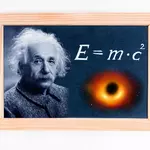Physics calculator

Classical mechanics
Classical mechanics is a theory that describes the motion of macroscopic objects, projectile motions of machinery parts and astronomical objects, and machine rotatory motion.
Photo by Xavier von Erlach on Unsplash

Thermodynamics
Thermodynamics is the study of the transfer of heat and energy from one body to another.
Photo by Viviane Okubo on Unsplash

Relativity
Relativity is the notion that the laws of physics are the same everywhere, be it on Earth or in a far off corner of the universe.
Image by Thanks for your Like • donations welcome from Pixabay

Electromagnetism
Electromagnetism is a branch of physics involving the study of the electromagnetic force, a type of physical interaction between electrically charged particles.
Photo by Mika Baumeister on Unsplash

Atomic physics
Atomic physics is the scientific study of the structure of the atom, its energy states, and its interactions with other particles and with electric and magnetic fields.
Photo by Terry Vlisidis on Unsplash

Nuclear Physics
Nuclear physics is the study of the protons and neutrons at the centre of an atom and the interactions that hold them together in a space.
Image by Gerd Altmann from Pixabay

Photonics
Photonics is the physical science of light waves. It deals with the science behind the generation, detection and manipulation of light.
Statistical Mechanics
Statistical mechanics is a mathematical framework that applies statistical methods and probability theory to large assemblies of microscopic entities.